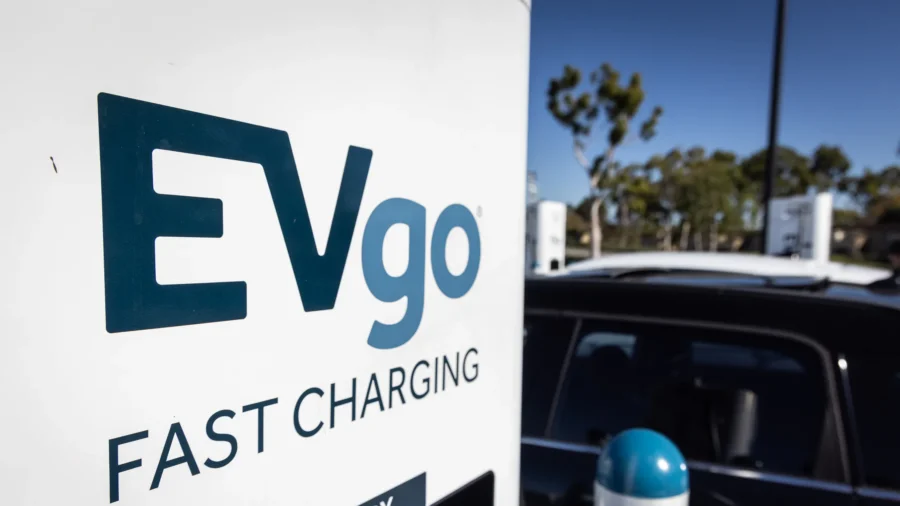The popularity of electric vehicles among American drivers has dropped 10 percent over the year, a recent survey found.
Four out of ten Americans said they were considering buying an electric vehicle as their next vehicle, down from 50 percent last year, a Jerry survey found.
Jerry is a company that created a mobile app for the comparison of insurance prices and other expenses of owning a car. In the last months of 2023, it surveyed 1,200 American drivers across all age groups and regions.
Its findings say that even though double the percentage of Americans are planning to buy a car compared to a year before, the popularity of EVs is nonetheless falling.
In a three-year span, 23 percent said they are expecting to buy an EV, down from 25 percent a year ago. Given a choice of two equally priced vehicles, one being a hybrid and the other an EV that requires a plug-in to charge, a majority of 83 percent said they would pick the hybrid.
The two major reasons for EVs falling in popularity were a personal preference for gas-powered vehicles (66 percent), and the limited driving range an EV can give (57 percent), followed by the inconvenience of charging an EV, concerns about EV reliability, and higher maintenance costs.
Conversely, the major reason for EV drivers to get an EV was cutting on the costs of gasoline.
Younger people, belonging to the Gen Z demographic especially, also lost interest in buying an electric vehicle as their next vehicle. The percentage of interested people in that demographic shrunk to 40 percent from 60 percent a year earlier.
Financial pressure could also be seen especially in the younger demographic (Gen Z and Millennials), a majority of whom said that they are cutting spending in other areas, such as restaurant meals, clothing, and even groceries, because they feel the burden of owning a car.
Specifically, 58 percent of American drivers said they are cutting expenses in other areas of their life because of the high costs of car ownership, with 80 percent of Gen Z answering this question in the affirmative, and 69 percent of Millennials.
Politics also play a role in picking a Tesla EV, as almost 4 out of 10 (37 percent) of drivers said they are less likely to buy a Tesla because of Elon Musk’s political views. Fifteen percent said they are more likely to buy a Tesla because of Elon Musk’s views.
Other Findings
Four in ten Americans said they are planning to buy a car, up from 2 out of 10 one year ago. An additional 22 percent said they would consider buying a vehicle if prices dropped, and 12 percent said they would consider buying a vehicle if the interest rates fall.
An expected high percentage, almost 60 percent, said that high prices are their major concern for buying a new vehicle. Almost a quarter of American drivers said that they are giving 20 percent of their household’s income to car payments. After an increase in interest rates by the Federal Reserve, American drivers who had bought cars with low-rate loans in the past years are now out of necessity ignoring financial advisers’ rule of thumb to not spend more than 10–15 percent of after-tax income on car payments.
New car prices kept rising in the past year and used car prices—even though they decreased—remain far higher than before the COVID pandemic. This makes buying a car unaffordable for many Americans.
For those who could afford an EV, the top choice remained Tesla, with 32 percent, followed by Ford with 13 percent. Kia, Hyundai, and Chevrolet are also top-selling EV vehicles, even though they are not yet as popular as Tesla and Ford.
Corporations on EVs
In October, executives with General Motors, Ford, and Mercedes-Benz conceded there is a weakening demand for electric vehicles, with some announcing they would pull back on their own EV targets.
“It’s been a challenging situation, for sure,” Ford CEO Jim Farley said, referring to the American market for EVs, according to an earnings call transcript.
As a result, the firm suspended $12 billion in EV spending on manufacturing capacity.
General Motors CEO Mary Barra, in a letter to shareholders, said that her company is “moderating the acceleration of EV production in North America to protect our pricing,” with the reason being slower growth in demand.
Also in October, Toyota’s chairman and former CEO, Akio Toyoda, said at an auto show in Japan that waning demand for electric vehicles is a sign that people are understanding that EVs are not a good solution for the supposed ills of carbon emissions.
“People are finally seeing reality” about EV technology, Mr. Toyoda told reporters ahead of the Japan Mobility Show in Tokyo, speaking in his capacity as the head of the Japan Automobile Manufacturers Association, the organizer of the event.
President Joe Biden has set a goal of 50 percent of all new vehicles by 2030 being either EVs or plug-in hybrids.


